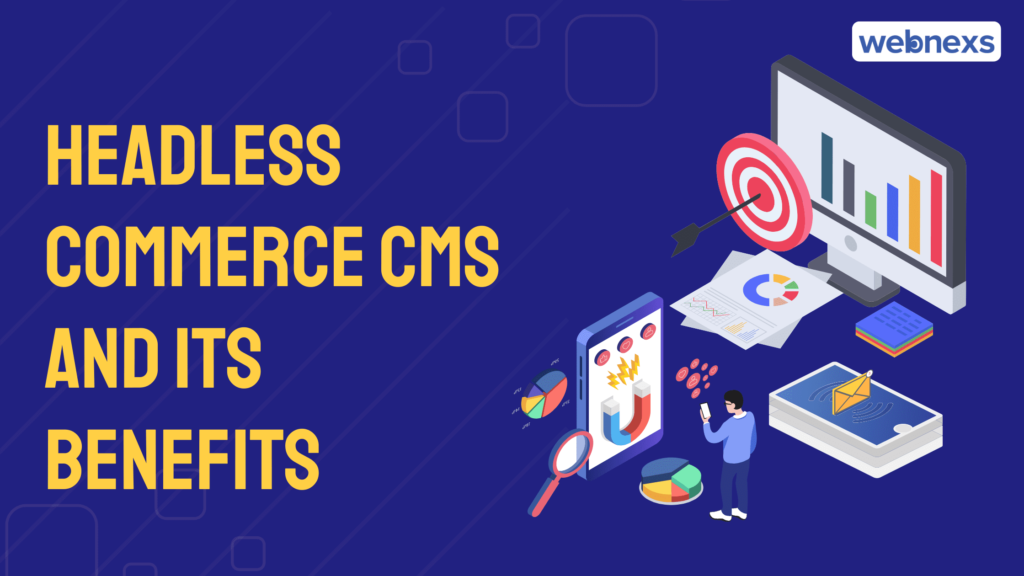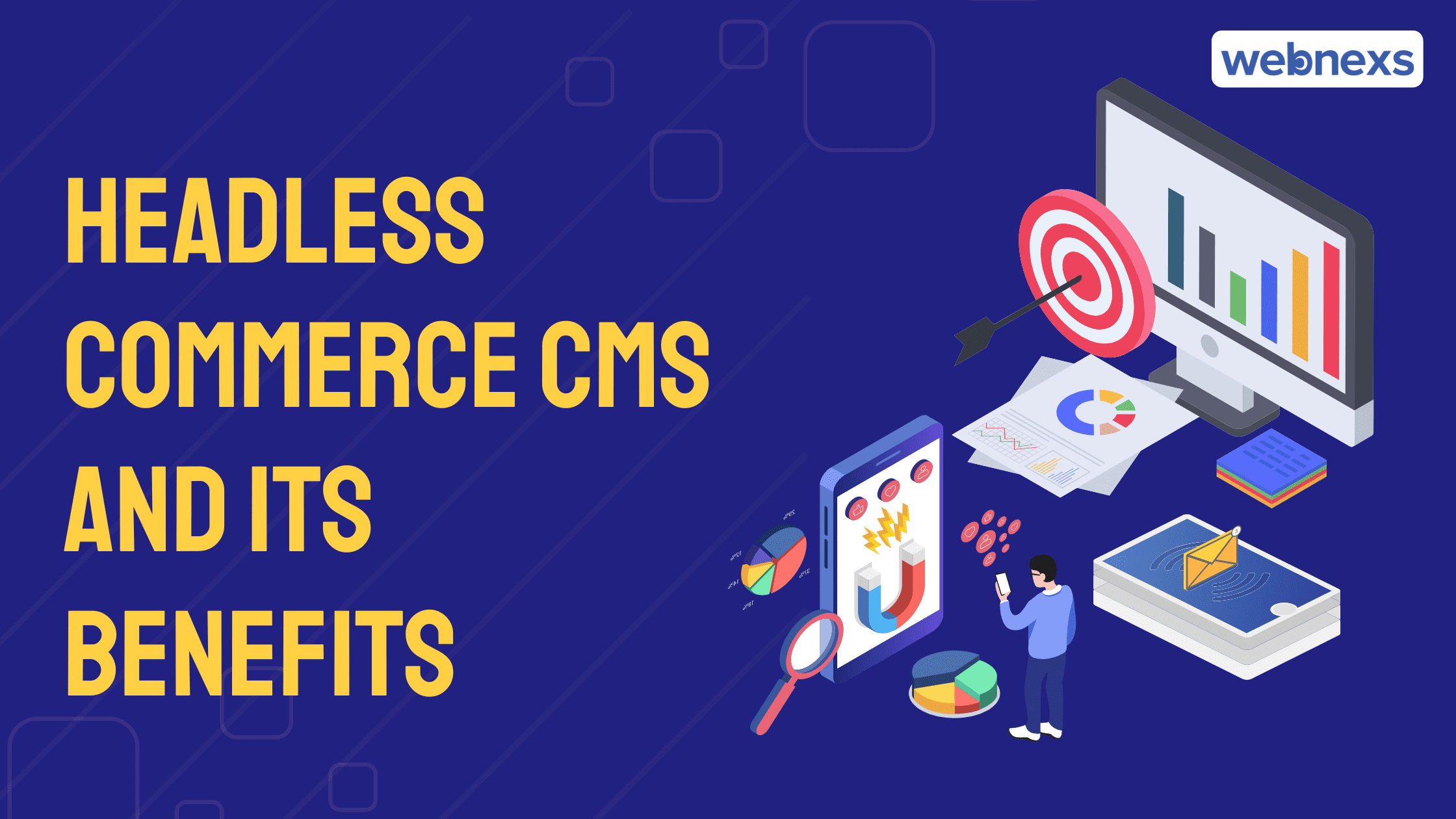Learn about the classic headless CMS platforms benefits to build an ecommerce site. Here’s the headless CMS best overview for you.
What is a Headless CMS?
Headless CMS platforms is a software architecture where the database, application logic, and content are separate from the user interface. It allows any payment system to add without updating the front-end layouts.
It also allows developers to focus on one thing without restrictions on how they design their storefront. Headless commerce CMS (in this article) is a platform that supports all functionalities required for a successful e-commerce site display.
How best the Headless CMS platforms looks like?
Headless CMS tools is a new way of doing business in which the front-end is separate from the back-end, Headless commerce’s front-end with a framework such as AngularJS or ReactJS.
Microservices architecture to build the back-end, which includes the eCommerce engine.
The front-end and back-end of a traditional eCommerce setup are inextricably linked. Any changes to the front end necessitate changes to the back end. The front-end and back-end are separate in a headless commerce setup. It enables the front-end to be developed separately from the back-end.
Headless commerce has many advantages over traditional eCommerce setups. For starters, it enables a more agile development process. Second, it makes scaling the front-end independent of the back-end easier. Third, it allows the use of different back-ends for different front-ends.
If You could, for example, use headless commerce setup to create a mobile app with another back-end than your main eCommerce website.
Headless commerce is a new concept that is still evolving. As a result, there are no hard and fast rules for creating a headless commerce system. research project to see what works best for your specific use case is the best way to learn.
What Exactly Is A Traditional CMS plaforms?

A traditional commerce CMS is a content management system that allows business owners to create and manage an online store. Traditional commerce CMS platforms typically include a shopping cart, order management, a product catalog, and payment processing to help businesses build and manage their eCommerce solution.
Headless CMS System: How it works?
A headless commerce Content Management System (CMS) is a back-end-only system that manages and delivers content to various front-end applications, such as a website, mobile app, or Internet of Things (IoT) device. These are considered to be the great headless CMS features till date.
The main benefit of using a top headless CMS pros is that it allows for greater flexibility and agility in content management and delivery.
For example, that could use to manage and deliver content to a website, mobile app, and IoT device, eliminating the need to duplicate content across multiple platforms.
Headless CMS and a Decoupled CMS: What is the difference?
Both platforms can help you manage and deliver content to your target audience. However, it must understand some significant differences between the two.
A headless CMS is a content management system that separates the back-end (content management) from the front-end (presentation). This allows for greater flexibility in how the content is displayed, as it can be accessed and displayed on any device or platform that can make API calls.
A decoupled CMS is similar to a headless CMS in that it also separates the back-end and front-end, but it goes a step further by allowing multiple front-end systems to access the same back-end. This allows for the same content to be displayed in multiple ways, such as on a website and a mobile app.
In summary, a headless CMS separates the back-end and front-end, while a decoupled CMS separates the back-end and front-end and allows for multiple front-end systems to access the back-end.
Additionally, decoupled CMS is a platform that combines back-end content management with front-end content display. A headless CMS is a platform that only handles back-end content management.
The front-end display of content in a decoupled CMS is separate from the back-end management. It can make it difficult to change the front end without changing the back end.
A headless CMS products separates the front-end display of content from the back-end management. It means that changes to the front end will not affect the back end.
A headless CMS solutions may be a good option if you need more control over how your content is displayed. It’s also an excellent option to display your content on multiple front-ends (such as a website and a mobile app).
A decoupled CMS may be a good option if you don’t need as much flexibility in displaying your content. It’s also an excellent option to display your content using a single front-end (like a website).
Benefits Of Using Headless content management system(CMS)
There are many headless CMS features and benefits of most popular, including:
Greater flexibility:
Because it separates the front-end and back-end, a headless business CMS offers greater flexibility than a traditional eCommerce platform.
It means you can build your front-end with any programming language or framework and power your eCommerce store with any back-end platform.
Improved performance:
Because it allows you to cache the HTML pages generated by the back-end, a headless CMS software can enhance the performance of your eCommerce store. It means that your customers’ pages will load faster.
Greater scalability:
Because it can be on multiple servers, a headless CMS SaaS is more scalable than a traditional eCommerce platform.
It means you’ll be able to scale your eCommerce store more easily as your company grows.
Tight security:
Because it is not reliant on a single server, a headless commerce CMS is more secure than a traditional eCommerce platform.
It means that even if one of your servers is compromised, the rest of your eCommerce store will remain safe.
Improved customer experience:
It can improve customer experience by allowing you to create a custom front-end that is trim to your brand.
It means you can design an eCommerce store that is unique to your company and offers a more personalized experience to your customers.
Visit Here: The Benefits Of Headless Commerce (CMS) And Growing Your Business
Why choose headless CMS?
Headless CMS and eCommerce are prevalent in today’s world because they allow for creating consistent, fast, and simple digital experiences.
A headless CMS is a content management system that allows you to manage content without a graphical user interface. The CMS can work content for any digital experience, such as a website, a mobile app, or a voice assistant.
A headless eCommerce platform can power any digital experience, such as a website, a mobile app, or a voice assistant.
Both headless CMS and eCommerce platforms enable the separation of the front-end and back-end of a digital experience.
The front-end can be built with any technology, while the back-end can be hopped-up by a headless CMS or eCommerce platform.
Why use headless CMS Software?
There are numerous reasons why a headless is essential. One advantage of headless CMS is that you can decouple your commerce platform from your content management system. It means you can use any content management system you want with your commerce platform, giving you more flexibility and options for managing your content.
Another reason why a headless CMS platform is essential is that it allows you to scale your business quickly. A headless commerce CMS can provide an API for connecting to other headless system, making it easier to expand your enterprise into new markets or add new products and services.
Finally, a headless commerce CMS can assist you in providing your customers with a more personalized shopping experience. You can gain more control over the customer experience by using benefits of headless architecture to create a single customer profile that it can use across all your channels.
Click Here: How does Headless Ecommerce Help To Succeed In Business?
Conclusion:
That’s all about the benefits of Headless CMS platforms. You can go beyond using a headless CMS reviews for content creation by using a headless commerce solution. You can use your website to drive product catalogs and directly process orders and sales. There is no need for the traditional eCommerce website or applications.
Using a Enterprise headless CMS, you can manage your content efficiently, drive sales, and process orders directly from your website.
Frequently Asked Question(FAQs)
How do a Traditional CMS and a Headless CMS Deliver Content, differences?
When content is manually edited in a traditional CMS, it is stored in a database until the user chooses to publish it. Headless CMS uses application programming interfaces (APIs) to deliver content.
At the same time, traditional CMS platforms have not been able to keep up. Why?
It is impossible for the same content to adapt to other digital platforms because a CMS organizes content in frameworks that are web page-oriented.
For a long while, the traditional CMS was all we had, but it stuck right?
As a response to the demand for flexible content delivery, there is now the headless CMS.
Should I use headless CMS?
A headless CMS is ideal because it makes website customization simple.
What are the Benefits of a Headless CMS over the conventional one?
You are free to concentrate on creating the platform itself because you don’t need to write any code. You can avoid worrying about technical difficulties in that way.
What Exactly Is a Headless Content Management System?
These headless systems lack a head and any front-end components in charge of managing the delivery of content to users.
Why were conventional CMSs designed to handle website content in a single channel?
Yes, but modern consumers access content through numerous channels, making it impossible for conventional systems to satisfy their needs. CMSs with no heads can help in this situation.


Leave a Reply to Christopher Cancel reply